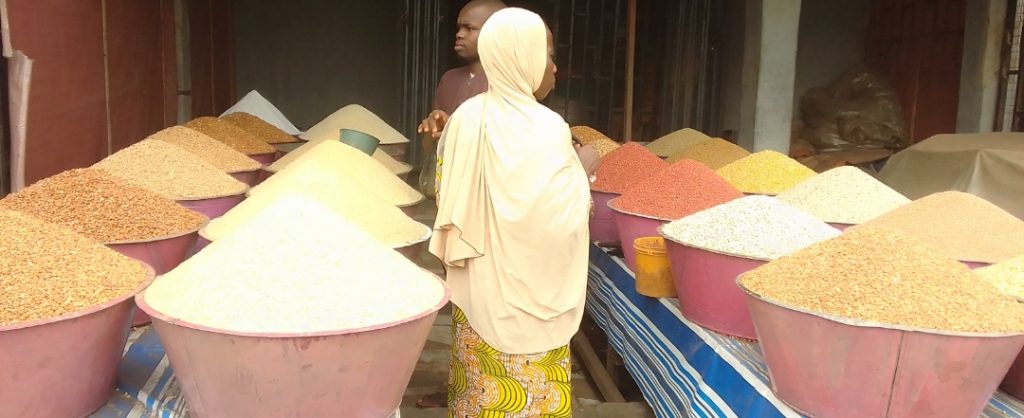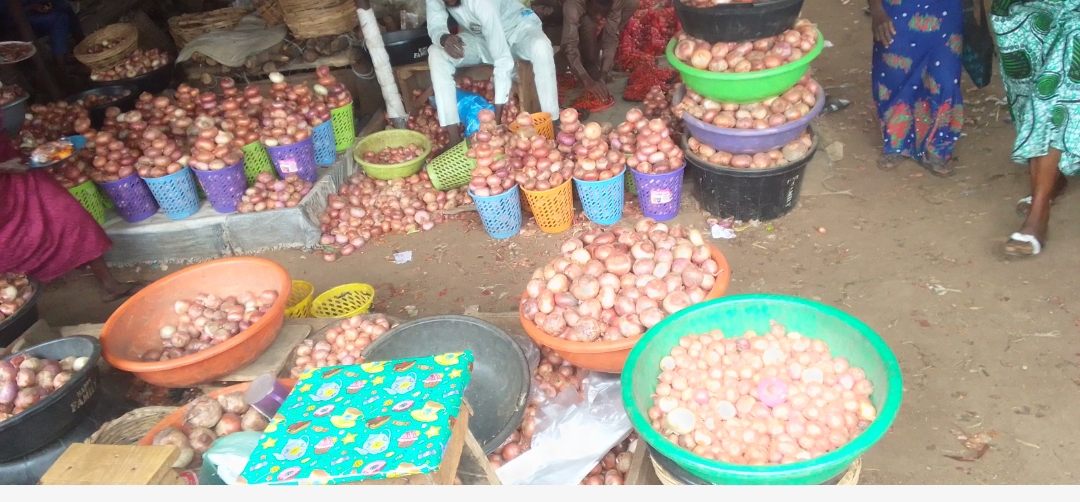By Safiyah Suleiman & Hope Emiator
With each passing year often worse than the last, Nigeria continues to grapple with double-digit inflation. This year is particularly severe, with the prices of staple foods reaching unprecedented levels.
The National Bureau of Statistics reported that Nigeria’s inflation rate rose to 34.19%, a 0.24% increase in June compared to May.
The report highlighted significant price hikes for food items across various regions. The average price of brown beans was highest in North-central at ₦2,923.45, followed by South-west at ₦2,630.03, and lowest in North-west at ₦1,647.03.
For tomatoes, the highest prices were in South-west and South-east at ₦3,261.84 and ₦2,852.59, respectively, while the lowest was in North-west at ₦1,422.16.
The Southwest also recorded the highest average price for yam tubers at ₦2,745.80, followed by North-central at ₦2,440.35, with the lowest in North-west at ₦1,238.49.

The highest average price for white garri was in Southwest and Northeast at ₦1,199.62 and ₦1,155.63, respectively, with the lowest in North-central at ₦1,055.87.
Current Situations
Mr. Imole expressed his frustration with the current economic situation: “My salary hasn’t increased, but the cost of everything keeps going up.
“Last month, I fell ill, and my salary wasn’t enough to cover my medical expenses. To make matters worse, my boss delayed paying me until 15 days after the end of the month.
“I couldn’t even afford a decent meal to help me recover. I had to dip into my life savings, which I had painstakingly set aside to start a small business and gain freedom from being under employers’ control. Now, my savings are gone, and I have no idea how I’ll manage from here. It’s a dire situation for so many of us in Nigeria, he lamented.”
Ajoke Abubakar, a widow with five children and a regular shopper at Ikpata Market in Ilorin, Kwara State, shared her woes: “The impact of high food prices is hitting my family hard. I often return from the market confused about how I spent the money I took, with only a few items in a small nylon bag.
Most times, my children and I have to skip meals, and sometimes we eat according to the formula ‘010’ or ‘101’—often unsure of where our next meal will come from, forcing us to beg for alms. We can no longer afford beans, cassava flour, rice, yam, and garri, which I used to buy early last year and could comfortably buy a cup of garri at just ₦400.
I don’t know how we fell into this pit. Before, citizens of neighboring countries used to come down to Nigeria to beg for alms; now, I don’t think they would want to come again.”
Similarly, the chairman of vegetable sellers in Mandate Market, Alhaji Muhammad Namare represented by Sekoni Moshood in an interview with Sobi FM reporters, called on the Federal and State governments to intervene in the continuously escalating food prices, adding that the high cost of farming fertilizer is a contributing factor.
Mallam Dauda Omolabi Owura, a market leader (Baba Loja of Ipata Market), also spoke with Sobi FM reporters, attributing the hike in food items to the rising price of petrol, which has increased transportation costs.
He noted that things have become harsher in the country since the removal of the fuel subsidy, which lacked adequate support measures to mitigate its impact.
He also pointed to insecurity, making it difficult for farmers to access their fields, and the depreciation of the Naira.
The assistant to Baba Loja added that while President Tinubu’s decision to temporarily remove import duties on some food items is a good step, it is only a short-term solution and should be seen as the beginning of a broader effort to address these issues.
Interviews and reports conducted across these markets and communities revealed that people are struggling with the economy and the soaring prices of food items.
They shared their woes and the deteriorating state of their livelihoods as a result of these economic challenges. Many are feeling the pressure of rising costs, with some families unable to afford basic necessities.
There is a widespread call for the federal and state governments to provide effective relief and implement lasting solutions to alleviate the hardship faced by citizens.
While it is known that other countries are also facing economic difficulties, the severity of the situation in Nigeria underscores the urgent need for comprehensive and sustained economic interventions.

